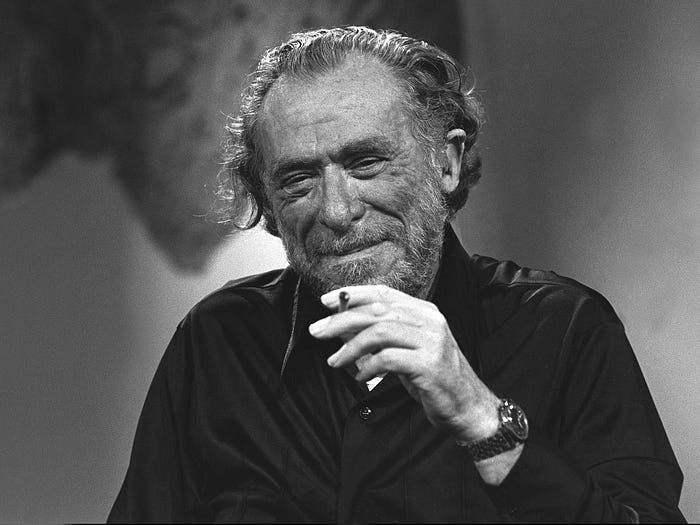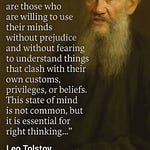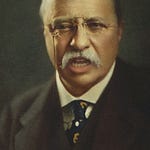Information-Warfare — Information War
Nobody can save you but yourself.
you will be put again and again into nearly impossible situations.They will attempt again and again through subterfuge, guise and force to make you submit, quit and /or die quietly inside.
Nobody can save you but yourself and it will be easy enough to fail so very easily but don’t, don’t, don’t. just watch them. listen to them.
Do you want to be like that?
A faceless, mindless, heartless being?
Do you want to experience death before death?
Nobody can save you but yourself and you’re worth saving.
It’s a war not easily won but if anything is worth winning then this is it.
Think about it. think about saving your self.
Your spiritual self.
Your gut self.
Your singing magical self and your beautiful self.
Save it.
Don’t join the dead-in-spirit.
Maintain your self with humor and grace and finally if necessary wager your self as you struggle, damn the odds, damn the price.
Only you can save your self. do it! do it! then you’ll know exactly what I am talking about. ~Charles Bukowski
Charles Bukowski’s poem “Nobody Can Save You But Yourself” is more than a personal manifesto — it is a battle cry for individual resilience in the face of an oppressive world. His words highlight the eternal struggle between submission and self-determination, a theme deeply rooted in history.
Throughout time, power structures, societal expectations, and psychological conditioning have sought to control, break, or assimilate individuals. Yet, history also provides examples of those who refused to be defeated — people who, against all odds, saved themselves.
This analysis will explore how Bukowski’s themes have played out historically, from totalitarian regimes to ideological resistance movements, and how the battle for personal sovereignty is as relevant today as ever.
1. The War on the Individual: Historical Suppression and Control
Bukowski writes:
“They will attempt again and again through subterfuge, guise, and force to make you submit, quit, and/or die quietly inside.”
History has shown that institutions, governments, and ruling elites have often worked not just to control people physically, but to crush their spirit — to turn them into faceless, mindless, heartless beings who conform without question.
Totalitarian Regimes: The System vs. the Self
📌 The Soviet Union (1917–1991): Under Stalin, the state demanded absolute ideological loyalty. Those who resisted were labeled “enemies of the people” and either executed, imprisoned, or sent to Gulags. The pressure to conform was immense — many turned in their own family members to survive.
📌 Nazi Germany (1933–1945): The regime promoted a homogeneous, obedient society, where dissent was punishable by death. Books were burned, intellectuals were silenced, and people were forced to “join or perish.”
📌 Mao’s China (1949–1976): The Cultural Revolution sought to erase individual thought — intellectuals, artists, and free thinkers were sent to re-education camps to be “purified” or executed for resisting state ideology.
In all of these cases, the system’s goal was the same: to create passive citizens who do not think for themselves. The individual had two choices — submit and die inside, or resist and risk everything.
2. The Resisters: Those Who Chose to Save Themselves
Bukowski reminds us:
“Nobody can save you but yourself… and it will be easy enough to fail, so very easily — but don’t, don’t, don’t.”
History offers countless examples of individuals who refused to lose their identity in the face of oppression.
Intellectual Resistance
📌 Socrates (399 BCE) — Chose to die rather than conform to state-imposed beliefs. His commitment to free thought and reason led to his execution by poison.
📌 Galileo Galilei (1633) — Imprisoned for promoting scientific truths that contradicted religious doctrine. Rather than abandon his beliefs, he famously muttered “And yet, it moves.”
📌 Aleksandr Solzhenitsyn (1918–2008) — Survived the Soviet Gulags and exposed the horrors of authoritarianism through his book The Gulag Archipelago, which helped destabilize the Soviet regime.
Revolutionary Thinkers and Fighters
📌 Frederick Douglass (1818–1895) — Born into slavery, taught himself to read, escaped, and became one of history’s greatest voices for freedom. His memoirs shattered myths about slavery and inspired abolitionists worldwide.
📌 Harriet Tubman (1822–1913) — Escaped slavery, then risked her life repeatedly to rescue others. She was hunted, threatened, and nearly killed — but never stopped fighting.
📌 George Orwell (1903–1950) — Wrote 1984 and Animal Farm as warnings against totalitarian control and mass deception. His works were banned in authoritarian states for exposing the mechanics of oppression.
Each of these individuals faced nearly impossible situations — but they did not submit, quit, or die quietly inside. Instead, they chose to fight, to resist, to think, and to save themselves.
3. The Modern Battle: Information Warfare and Psychological Submission
Bukowski asks:
“Do you want to experience death before death?”
This “death before death” is not physical but psychological — it is the numbing of the mind, the death of independent thought, the acceptance of propaganda, groupthink, and intellectual laziness.
How Does This Play Out Today?
🔹 Media Manipulation: Governments, corporations, and elites use news, social media algorithms, and psychological tactics to keep people fearful, distracted, and divided.
🔹 Cancel Culture & Thought Policing: Free thinkers risk losing careers, reputations, and social standing for refusing to conform to dominant narratives.
🔹 Algorithmic Censorship: Information is curated and controlled — you see what they want you to see.
🔹 Mass Surveillance: Governments and corporations track, monitor, and predict behavior, making true privacy a relic of the past.
💡 If we do not guard our minds, we risk becoming the very “faceless, mindless, heartless beings” Bukowski warns about.
4. The Final Choice: Do You Save Yourself or Join the Dead-in-Spirit?
Bukowski ends with a command:
“Only you can save yourself. Do it! Do it! Then you’ll know exactly what I am talking about.”
🔹 Will you be a passive observer in your own life, accepting the lies and manipulations fed to you?
🔹 Will you sacrifice your individuality for comfort and follow the herd?
🔹 Or will you resist, question, think, and fight for the truth — no matter the cost?
History is clear — only those who fight for themselves, who refuse to be broken, who reclaim their own mind, truly live.












